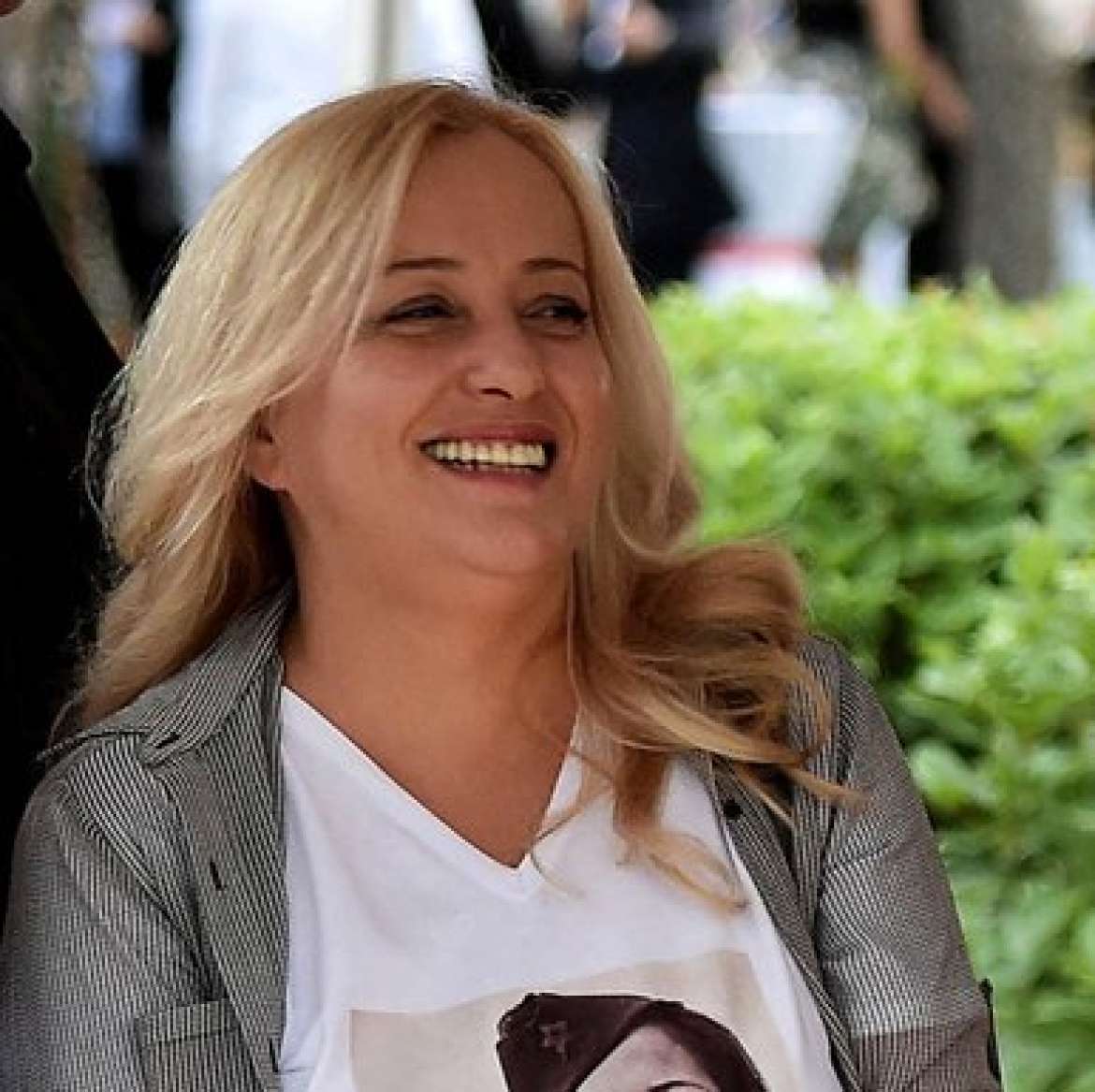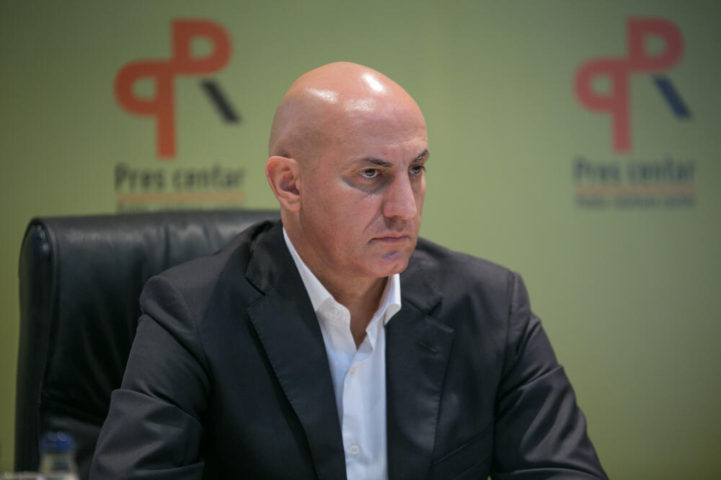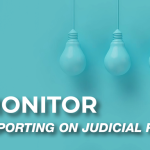
REACTION TO THE TEXT “PROJECTS ARE DEFENDED BY FALSE STATEMENTS”
17/12/2020
URGENTLY PROTECT JOURNALIST OLIVERA LAKIĆ
28/12/2020THE CASE OF RTCG COUNCIL MEMBER GORAN ĐUROVIĆ: THREE YEARS ON, HE IS TO WAIT ANOTHER TWO FOR JUDICIAL PROTECTION FROM HIS ILLEGAL DISMISSAL BY THE PARLIAMENT

Photo: Vijesti
In December of 2017, Goran Đurović was illegally dismissed from his position on the Radio and Television of Montenegro (RTCG) council by the Montenegrin Parliament. Since then, he has been seeking judicial protection. Now, following three years of legal battle, the High Court in Podgorica has revoked the first-instance verdict rejecting Đurović’s lawsuit due to a lack of jurisdiction and returned the case for a new procedure.
The High Court concluded that, in this case, the regular courts still have jurisdiction to review the legality of decisions of the Parliament of Montenegro on the appointment and dismissal of public officials, which is progress. This decision allows Đurović and other NGO activists who have been illegally dismissed by the Assembly from their positions in state regulatory bodies a chance to get justice at some point.
However, the Human Rights Action (HRA) believes that the High Court should now resolve this dispute on its own and thus finally provide judicial protection to Đurović, instead of returning the case to the Basic Court for a second time, only prolonging this legal agony for approximately two more years.
This course of events demonstrates that securing judicial protection from decisions of Parliament takes five years, thus encouraging any political majority within Parliament to dismiss members of independent bodies at a whim, safe in the knowledge that they have no effective recourse. This sort of scenario is not accounted for in the new Law on Media, despite HRA’s timely recommendation to include provisions prescribing immediate judicial action in disputes concerning appointments and dismissals of RTCG council members.
We remind that Đurović was dismissed from the RTCG Council by decision of the Parliament of Montenegro on December 29, 2017, based on the disputed decision of the Agency for Prevention of Corruption no. UPI 02-01-282 / 4 from September 28, 2017. Đurović filed a lawsuit to the Administrative Court seeking annulment of the decision of the Parliament on January 16, 2018, but that court declared that it lacked jurisdiction on January 19, 2018. It was only on March 21, 2019 that the Supreme Court confirmed this decision of lacking jurisdiction.
On January 25, 2018, Đurović filed a lawsuit with a provisional measure with the Basic Court in Podgorica. Judge Radovan Vlaović adopted the provisional measure and ruled on February 5, 2018 that Đurović’s role on the council was to be reinstated until the end of the proceedings. However, the provision was revoked by the court’s chamber ten days later. On February 28, 2018, Judge Vlaović annulled the decision of the Parliament regarding Đurović’s dismissal by ruling it to have been illegal.
The High Court chamber (president Nenad Otašević, member Dragiša Baletić, and reporter Mirjana Vlahović) proceeded to annul this ruling on July 16, 2019, reasoning that the Basic Court should verify whether the Parliament’s decision stems from the constitutional or the legal mandate of the Parliament. The opinion of the High Court, based on the stance of the Supreme Court from June 27, 2019, was that if the decision of the Parliament regarding the dismissal of Đurović was based in constitutional authorities, then the Basic Courts did not have jurisdiction to rule on such a dispute, nor could a legal dispute even be carried out against such a decision by the Parliament.
Regrettably, in the repeated process, judge Vlaović of the Basic Court in Podgorica did not decide in accordance with the stance of the High Court, instead citing the controversial legal stance of the Supreme Court of Montenegro in his decision from October 25, 2019, wherein he declared that his court lacked jurisdiction.
In February of 2018, Đurović submitted constitutional appeals with provisional measures against both the decision of the Montenegrin Parliament to dismiss him from the RTCG Council, and the decision of the Council of the Basic Court in Podgorica which denied him the provisional measure of reinstatement to the RTCG Council. The Constitutional court rejected both appeals as premature, concluding that the Đurović should wait until the proceedings before the regular courts (the Administrative and Basic Court in Podgorica) were concluded. HRA considers that with this decision, the Constitutional court has also joined the regular courts by denying legal protection. Unfortunately, an individual judge of the European Court for Human Rights also assessed the case by stating that domestic legal remedies should be exhausted, no matter their quality, prior to applying for international aid.
We remind that in the cases of other NGO activists who were illegally dismissed from their posts in governmental regulatory bodies by the Parliament, Sanja Nikić, a Basic Court judge from Nikšić, passed two judgements annulling the decisions of the Parliament regarding the dismissal of Nikola Vukčević as a member of the RTCG Council. Similarly, Branka Zeković, a Basic Court judge in Podgorica, annulled the Parliament’s decision about the dismissal of Vanja Ćalović Marković from her position as a member of the Corruption Prevention Agency (ASK) council. This is the first time in these disputes that the High Court has authorised Basic Courts to resolve this type of case.
Legal protection in these proceedings is being provided for Goran Đurović by the Human Rights Action in cooperation with the Media Law Defence Initiative from London. Goran Đurović’s lawyer is Dalibor Tomović.






 English
English